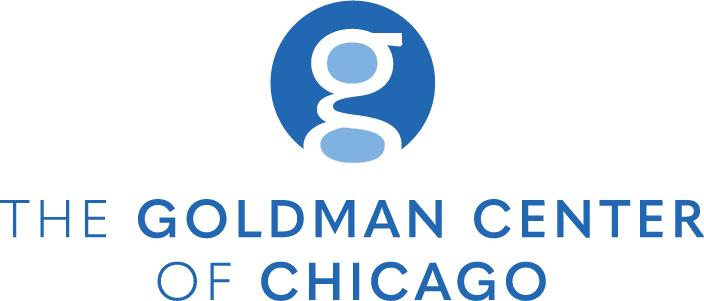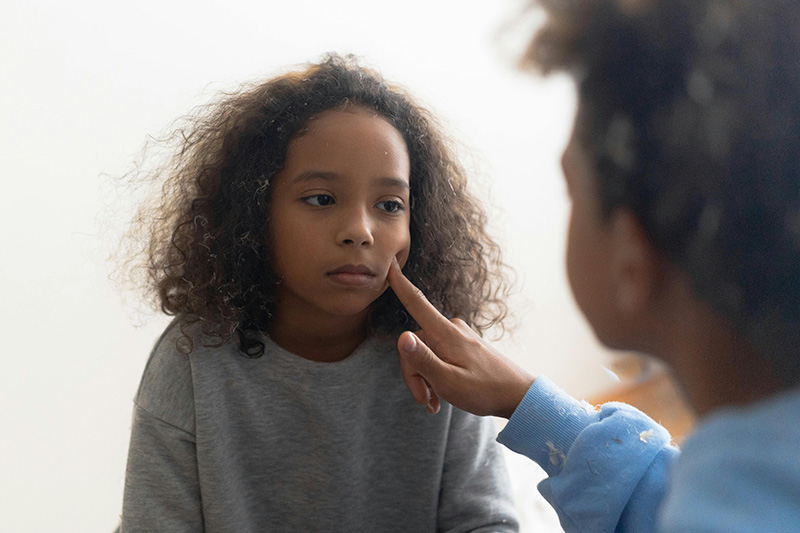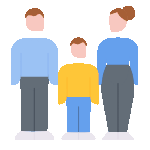What is Major Depressive Disorder (MDD) in children?
Major depressive disorder is a form of depression characterized by chronic feelings of sadness or loss of interest and pleasure in activities that were previously enjoyable.
Signs of Major Depressive Disorder
A key sign of major depressive disorder is change in mood. Change in mood is a normal part of a child’s life, but when combined with loss of hope or lack of interest in activities, a child may have major depressive disorder.
Other signs of MDD:
- Unusual sadness
- Persistent sad or irritable mood
- Reduced interest in activities
- Increased irritability, anger, or hostility
- Loss of anticipatory pleasure
- Reckless behavior
- Frequent absences from school
- Poor performance in school
- Frequent physical complaints
- Changes in weight
- Changes in energy levels
- Attention problems
- Major changes in sleep patterns
- Sluggishness
- Inappropriate guilt
- Unusually hard on themself
- Thoughts of suicide
- Alcohol or substance abuse
Atypical Depression
Some children with MDD may not talk about their thoughts or feelings and may not even appear sad. If parents are unaware of the emotional state of their child, their lack of interest or other behaviors associated with MDD can be perceived as unmotivated or oppositional.
Consummatory Pleasure
Children with MDD do not actively seek out pleasurable opportunities but may participate in an activity if directly presented with one. For example, a child who previously enjoyed playing baseball with neighborhood friends will not actively organize a game but may play if a game is organized by someone else nearby.
Causes of Major Depressive Disorder
Genetics
It is common for children with major depressive disorder to have parents with depression or other family history of mental health disorders.
Chemical Imbalance
A chemical imbalance in the brain can be the cause of a child’s major depressive disorder. Neurotransmitters may be out of balance which affects the brain’s communication system.
Trauma
Major depressive disorder may be the result of adverse childhood events or other stressful occurrences in a child’s life.
Other Medical Conditions
Other medical conditions or disorders may be the cause of a child’s major depressive disorder.
Diagnostic Criteria of Major Depressive Disorder according to the DSM-V
A. 5 or more symptoms present during a 2 week period; (1) depressed or irritable, cranky mood (outside being frustrated) or (2) loss of interest or pleasure and any three of the following:
- Depressed mood most of the day, nearly every day, as indicated by either subjective report (feels sad, empty, hopeless) or observation made by others (appears sad, irritable mood).
- Markedly diminished interest or pleasure in all, or almost all, activities most of the day.
- Significant weight loss or weight gain when not dieting (more than 5% of body weight in a month), or decrease or increase in appetite.
- Insomnia or hypersomnia.
- Psychomotor agitation or retardation.
- Fatigue or lack of energy.
- Feelings of worthlessness or excessive guilt.
- Decreased concentration or indecisiveness.
- Recurrent thoughts of death or suicide.
B. The symptoms cause clinically significant distress or impairment in social, occupational, or other important areas of functioning.
C. The episode is not attributable to the physiological effects of a substance or to another medical condition.
D. The occurrence of the major depressive episode is not better explained by schizoaffective disorder, schizophrenia, schizophreniform disorder, delusional disorder, or other specified and unspecified schizophrenia spectrum and other psychotic disorders.
E. There has never been a manic episode or a hypomanic episode. This does not apply if the episodes are substance-induced or attributed to the physiological effects of another medical condition.
Treatment
Treatment of major depressive disorder is unique to each child. Children with MDD can benefit from psychotherapy, medication, or a combination of the two.
What is Psychotherapy?
A child receiving psychotherapy works with a licensed mental health professional to help learn how their thoughts affect their feelings and behaviors. Two types of psychotherapy include cognitive behavioral therapy and interpersonal therapy.
What is Cognitive Behavioral Therapy?
Cognitive behavioral therapy encourages children to learn strategies and behaviors to start participating in the activities they have withdrawn from. This approach to therapy helps children to use effective ways of thinking to change negative thoughts into positive thoughts and actions.
What is Interpersonal Therapy?
Interpersonal therapy helps children to positively impact the relationships in their lives. This approach to therapy can be individual therapy, family therapy, or therapy sessions with other important individuals.
Medication
Medications used to treat major depressive disorder are prescribed to help a child manage their symptoms. These medications include selective serotonin reuptake inhibitors (SSRIs), serotonin-norepinephrine reuptake inhibitors (SNRIs), tricyclic antidepressants (TCAs), norepinephrine-dopamine reuptake inhibitors (NDRIs), monoamine oxidase inhibitors (MAOIs).









